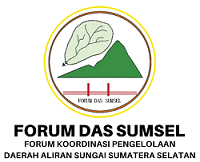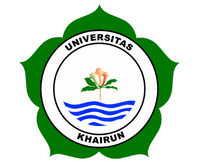Utilization of Eco-Enzyme from Household Organic Waste to Maintain Soil Fertility and Plant Pest Control
Abstract
The use of inorganic chemical fertilizers and synthetic pesticides in the cultivation of crops carried out by farmers has caused negative effects on the environment. Likewise, the disposal of household organic garbage by the community has caused pollution in the surrounding environment. To reduce environmental disturbances due to garbage deposits, household organic garbage can be utilized for making eco-enzyme. Eco-enzyme is a complex organic compounds solution resulting from the fermentation of organic garbage, water, and sugar. Eco-enzyme solution can be used by the community as a versatile cleaning liquid, for environmentally friendly plant fertilizer and plant pest control. Community service activity has been carried out in Gelebak Dalam Village, Rambutan District, Banyuasin Regency, in the form of counseling and demonstrations of making eco-enzyme solutions from fruit peels and vegetable residues. Knowledge of eco-enzyme is very beneficial for the community, because, in addition to reducing the negative effects of organic garbage deposits on the environment, eco-enzyme is also useful in reducing the use of inorganic fertilizers and synthetic pesticides in plant cultivation activities.
Full Text:
PDFReferences
Agustina, R., Wira, T., Endah, G. (2020). Modul Kelas Belajar Eco-Enzyme. Tim Penyusun Modul Kelas Belajar Ngajaga Bumi. 87 hal.
Lestari, A.P. (2009). Pengembangan Pertanian Berkelanjutan melalui Subtitusi Pupuk Anorganik dengan Pupuk Organik. Jurnal Agronomi Vol. 13 No. 1: 38-44.
Megah, S. I., Dewi, D. S., Wilany, E. (2018). Pemanfaatan Limbah Rumah Tangga Digunakan Untuk Obat Dan Kebersihan. Minda Baharu Vol. 2 No.1: 50-58.
Nurhamidah, Amida, N., Rohiat, S., Elvinawati. (2021). Pengolahan Sampah Organik Menjadi Eco-enzyme pada Level Rumah Tangga menuju Konsep Eco-community. ANDROMEDA: Jurnal Pengabdian Masyarakat Rafflesia Vol. 1 No. 2:43-46.
Rochyani, N., Utpalasari, R.L., Dahliana, I. (2020). Analisis Hasil Konversi Eco Enzyme Menggunakan Nenas (Ananas comosus ) dan Pepaya (Carica papaya L.). Jurnal Redoks Vol. 5 No. 2:135-140.
Septiani, U., Najmi, Oktavia, R. (2021). Eco-enzyme: Pengolahan Sampah Rumah Tangga Menjadi Produk Serbaguna di Yayasan Khazanah Kebajikan, Seminar Nasional Pengabdian Masyarakat LPPM UMJ. 7 hal. E-ISSN: 2714-6286. Website: http://jurnal.umj.ac.id/index.php/semnaskat.
Wuni, C., Husaini, A., Wulandari, P. (2021). Pelatihan Pembuatan Eco-Enzyme dari Limbah Organik Rumah Tangga sebagai Alternatif Cairan Pembersih Alami. J-Abdi Jurnal Pengabdian Kepada Masyarakat Vol.1 No.4:589-594.
Yuliandewi, N.W., Sukerta, I.M., Wiswasta, A. (2018). Utilization of Organic Garbage as “Eco Garbage Enzyme” for Lettuce Plant Growth (Lactuca sativa L.). International Journal of Science and Research (IJSR), 7(2):1521–1525.
DOI: https://doi.org/10.32502/altifani.v3i1.5355
Refbacks
- There are currently no refbacks.
Copyright (c) 2022 Altifani Journal: International Journal of Community Engagement
Indexed by:
Altifani Journal: International Journal of Community Engagement
Diterbitkan oleh Fakultas Pertanian, Universitas Muhammadiyah Palembang
Contact Person:
Rika Puspita Sari, M.Si (HP/WA: +62 813-7490-0341)
Klinik Publikasi Pertanian, Faculty of Agriculture, Universitas Muhamamdiyah Palembang
JL. Jend.A.Yani 13 Ulu Palembang, South Sumatra, Indonesia
Tel. (+62)711-511731; Email: kppfpump@gmail.com; Website: https://jurnal.um-palembang.ac.id/altifani

This work is licensed under a Creative Commons Attribution 4.0 International License.









.png)
14.png)





